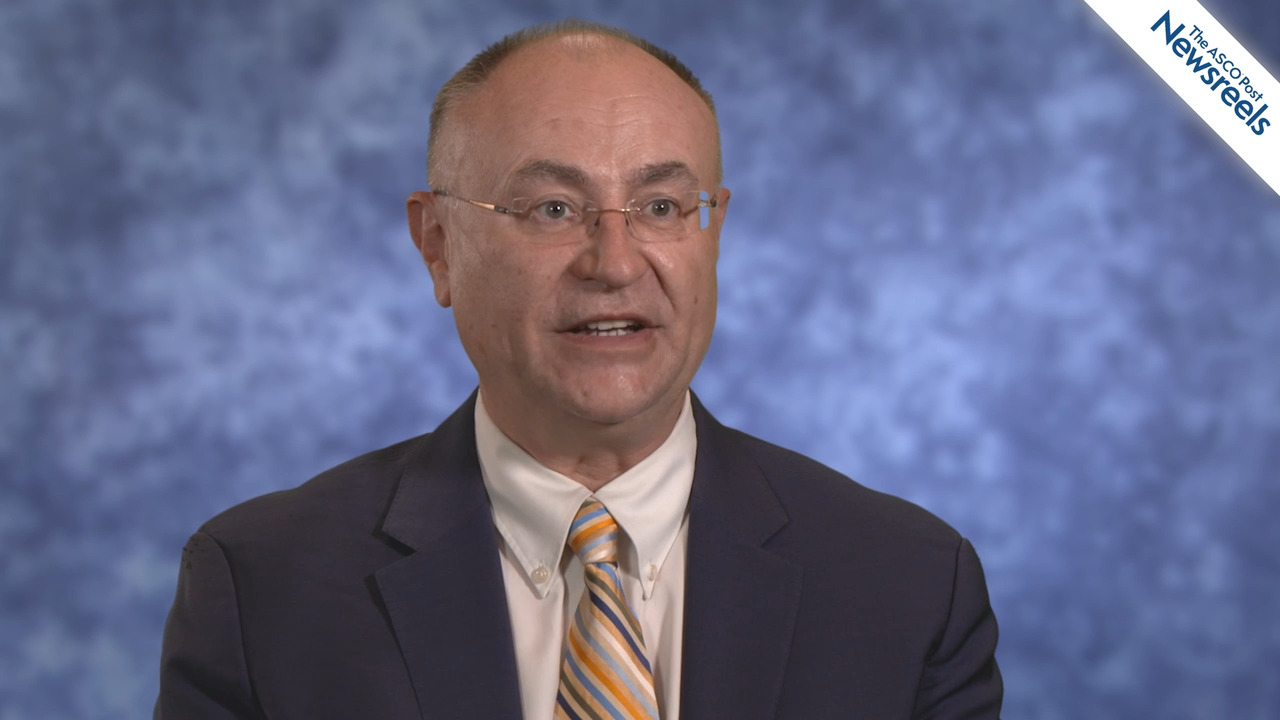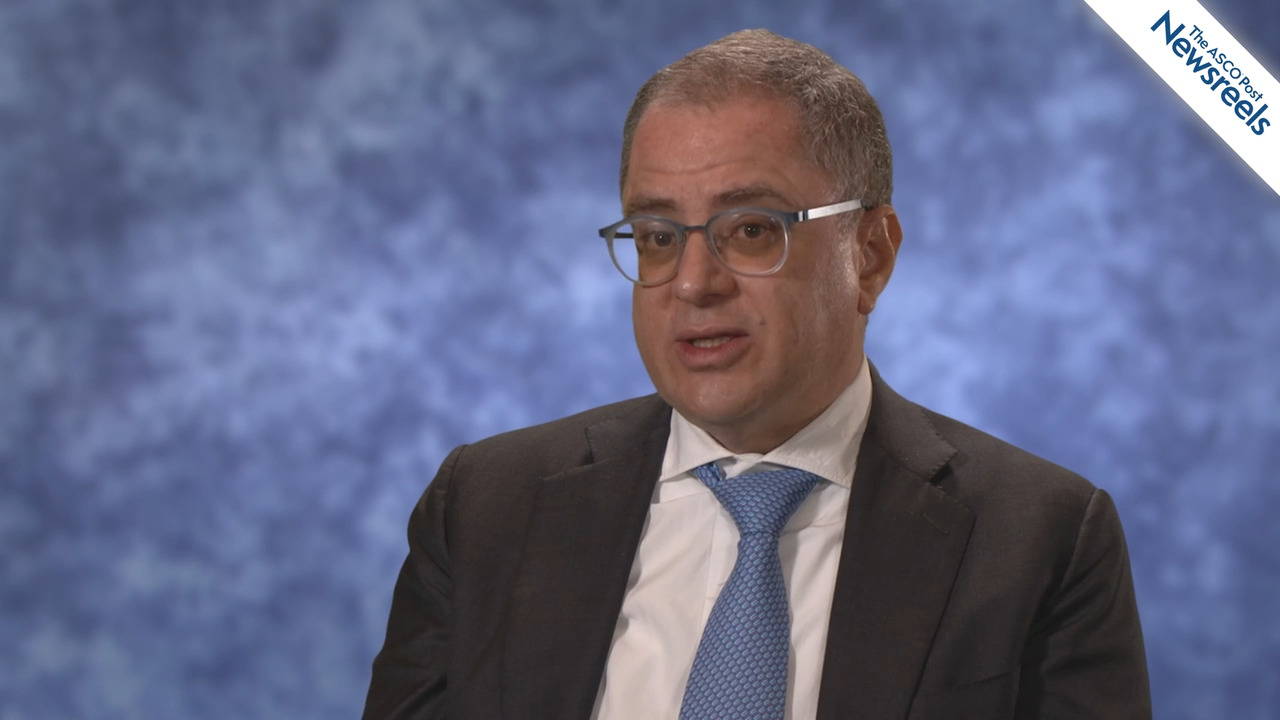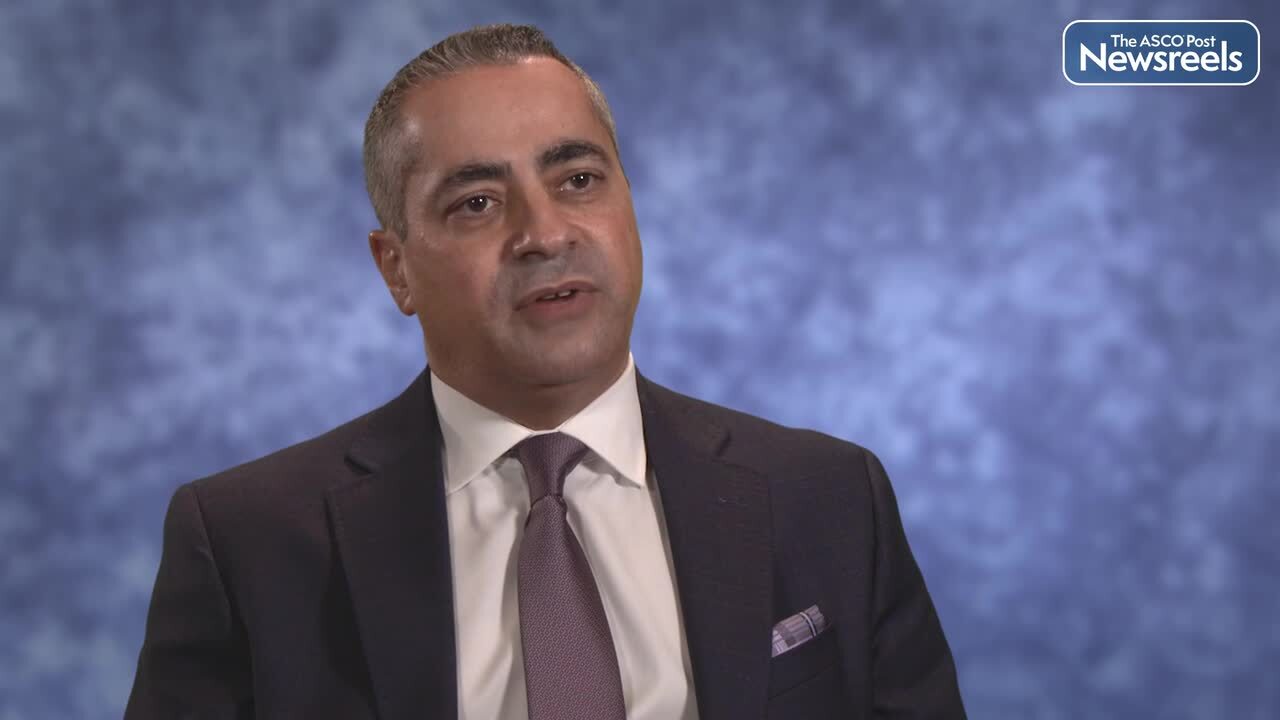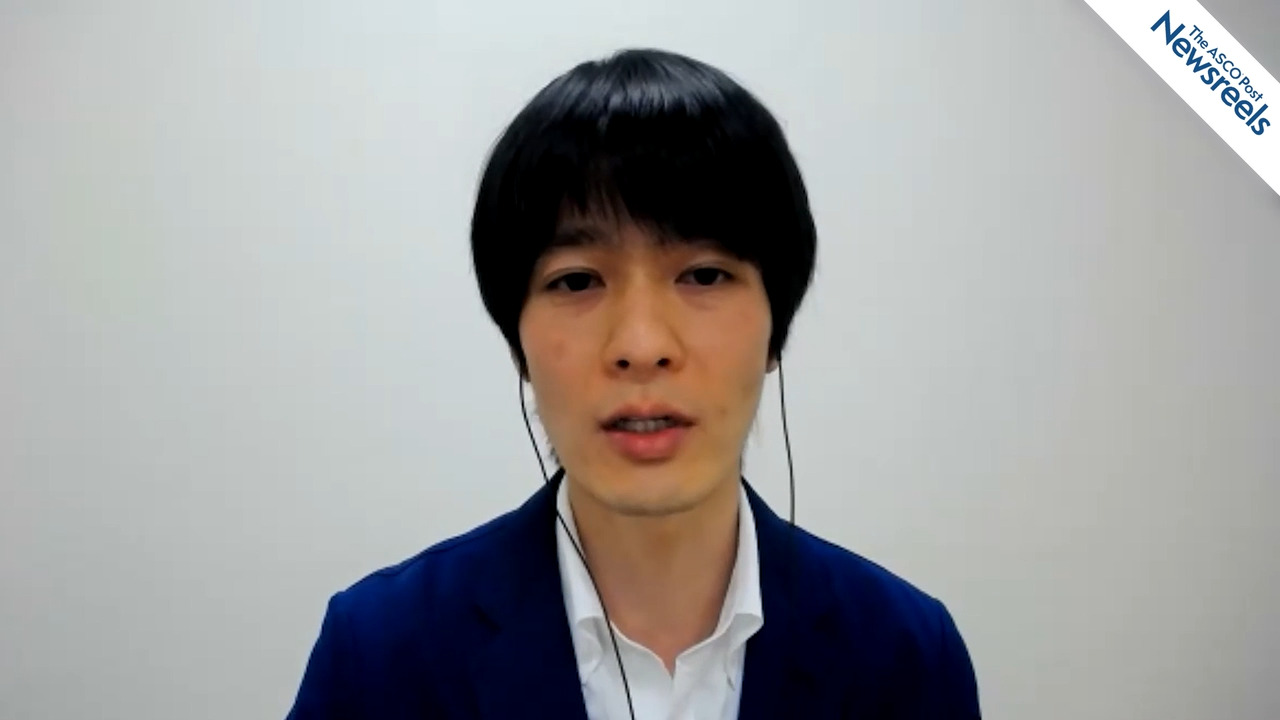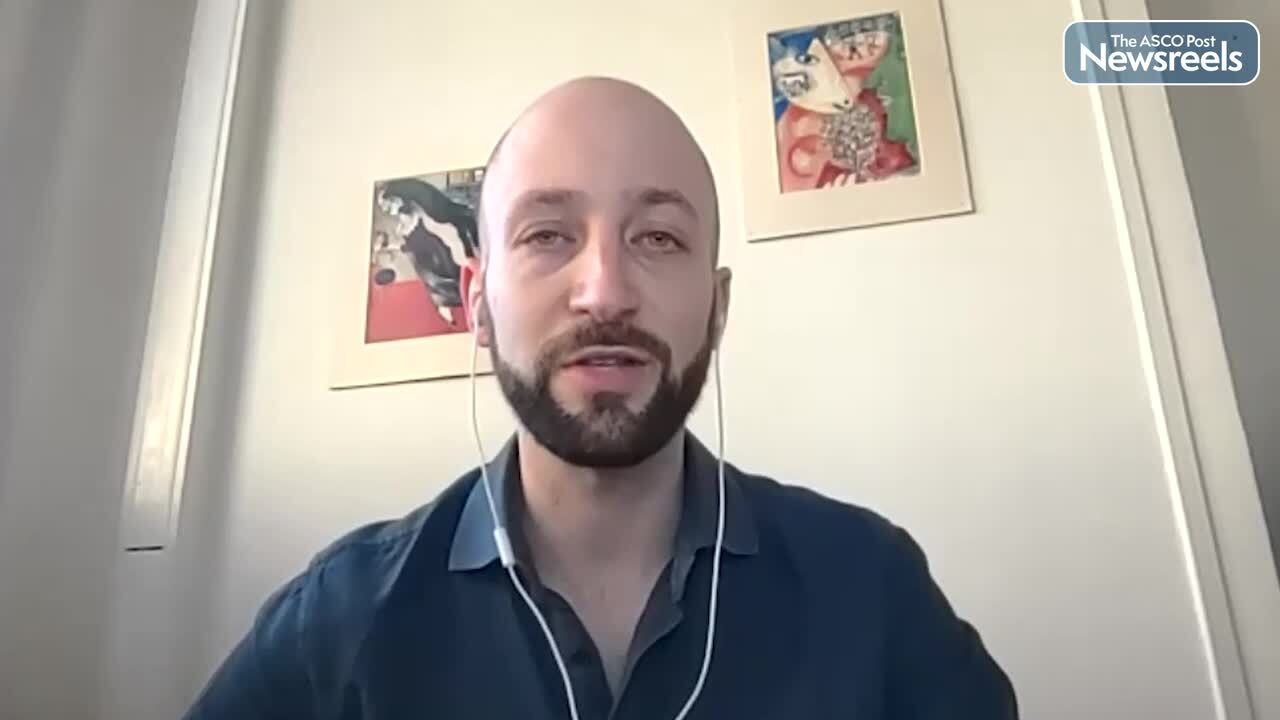Melissa Amy Lumish, MD, on Rectal Cancer: PD-1 Blockade for Mismatch Repair–Deficient Disease
2022 ASCO Gastrointestinal Cancers Symposium
Melissa Amy Lumish, MD, of Memorial Sloan Kettering Cancer Center, discusses new findings showing a 100% complete response rate to PD-1 blockade alone among the first 11 patients with locally advanced mismatch repair–deficient rectal cancer treated with this approach. None of the patients required chemoradiation or surgery, thus avoiding their attendant morbidities, and so PD-1 blockade may represent a new treatment paradigm. Follow-up on the durability of response is needed (Abstract 16).
The ASCO Post Staff
Heinz-Josef Lenz, MD, of USC Norris Comprehensive Cancer Center, discusses phase II results from the CheckMate 9X8 study, which compared nivolumab plus fluorouracil/leucovorin/oxaliplatin (mFOLFOX6) and bevacizumab vs mFOLFOX6 and bevacizumab in the first-line treatment of metastatic colorectal cancer. A subgroup of patients may benefit from adding nivolumab to the standard of care in this setting (Abstract 8).
The ASCO Post Staff
Ghassan K. Abou-Alfa, MD, MBA, of Memorial Sloan Kettering Cancer Center and Weill Medical College at Cornell University, discusses phase III results of the HIMALAYA trial, which showed the combination of a single priming dose of tremelimumab added to durvalumab is superior to sorafenib for patients with unresectable hepatocellular carcinoma (Abstract 379).
The ASCO Post Staff
Anthony B. El-Khoueiry, MD, of the University of Southern California, Norris Comprehensive Cancer Center, discusses two key phase III studies of first-line treatment in hepatocellular carcinoma: the LAUNCH trial, which explored lenvatinib combined with transarterial chemoembolization for advanced disease; and the HIMALAYA trial, which studied tremelimumab and durvalumab for unresectable disease. The latter trial may represent a new standard of care, according to Dr. El-Khoueiry.
The ASCO Post Staff
Kohei Shitara, MD, of Japan’s National Cancer Center Hospital East, discusses a long-term data follow-up from CheckMate 649, which support the continued use of nivolumab plus chemotherapy as first-line treatment in patients with advanced gastric, gastroesophageal junction, and esophageal adenocarcinomas (Abstract 240).
The ASCO Post Staff
Romain Cohen, MD, PhD, of Sorbonne University and Saint-Antoine Hospital, discusses phase II results of the GERCOR NIPICOL study, which suggests nivolumab plus ipilimumab at a fixed duration of 1 year continued to show durable activity in patients with chemoresistant microsatellite instability–high/mismatch repair–deficient metastatic colorectal cancer after 3 years of follow-up. Dr. Cohen points out there is now some question as to whether all patients need 2 years of therapy (Abstract 13).
